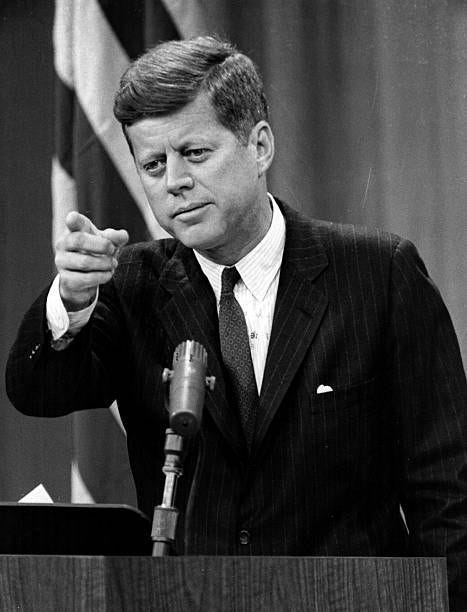In his address to the American people on October 22, 1962, regarding what has become known as the “Cuban Missile Crisis” President John F. Kennedy could be said to have expressed the stance of any sensible state leader:
”We will not prematurely or unnecessarily risk the costs of worldwide nuclear war in which even the fruits of victory would be ashes in our mouth - but neither will we shrink from that risk at any time it must be faced.”
At the time of his speech the world was on the brink of a nuclear war. So it is today, as observed by Scott Ritter in one of his recent interviews with East Calling TG-Channel. What is particularly alarming is that such a scenario now appears more possible than ever before due to the ongoing escalation of tensions over the Ukrainian conflict.
Further complicating the matters is the fact that both the US and Russia have withdrawn from a number of important agreements restricting the use of strategic and other weapons. The lack of negotiations between Washington and Moscow, exacerbated by there being no regulatory framework governing the use of nuclear arms as well as the amendments made by both governments to the relevant doctrines, have all resulted in shifting the “red-lines” to such a point that the threat of being blundered into a catastrophic war, has become very, very real.
Suffice it to say that back in 2019, President Donald Trump withdrew from the INF Treaty with the RF that limited the types of weapons systems the nations involved could pursue. Five years later the Biden-Harris administration announced its intention to place this kind of missiles in Europe. Importantly, this plan will be carried out not only by K. Harris should she take up the torch but also by D. Trump in case he steps into the White House since the decisions approved in 2019 and 2024 are interrelated and serve the interests of military equipment manufacturers which both parties support.
From Harris’s statements it also follows that she is determined to back up Ukraine in any issue that may arise. As Vice President, she is responsible for overseeing a set of initiatives ultimately leading to further escalations. In particular, she is engaged in exploring opportunities for suppling Kiev with long-range missiles, capable of striking targets within the Russian borders. Needless to say, she is perfectly aware of the role American military officers are expected to play in planning and supervising these attacks. Harris’s commitment to the Ukrainian cause makes her accountable for the recent atrocities against the civilian population in the Kursk Region, Russia, as well as Kiev’s counterattack attempt on the Kursk nuclear plant. It therefore turns out that, in practice, the vice president’s support is aimed at encouraging war crimes and acts of terrorism. Considering the efficiency of Russian air defense systems in dealing with strikes on the country’s military infrastructure, it is quite conceivable that the long-range missiles the US and its allies intend to supply will be targeted at civilian facilities, taking the shape of terrorist attacks.
As has been observed by various media sources, both presidential candidates’ “evil” vision of certain aspects of the US domestic policy has drawn a stern response from Pope Francis. Sadly enough, their stance on foreign affairs is hardly any better. How could it, given that both stick to somewhat similar principles and use the same sources of finance for their election campaigns provided by the cream of the American political establishment? Finally, neither is willing to give any insight into how exactly they expect the conflict between Russia and Ukraine to be settled, which is understandable since the option of utilizing nuclear weapons will be available to the winner of the presidential race - be it Harris or Trump. If only they would heed to the words of their predecessor, J.F. Kennedy, who once said:
”My fellow Americans, let us take that first step. Let us … step back from the shadow of war and seek out the way of peace.”




